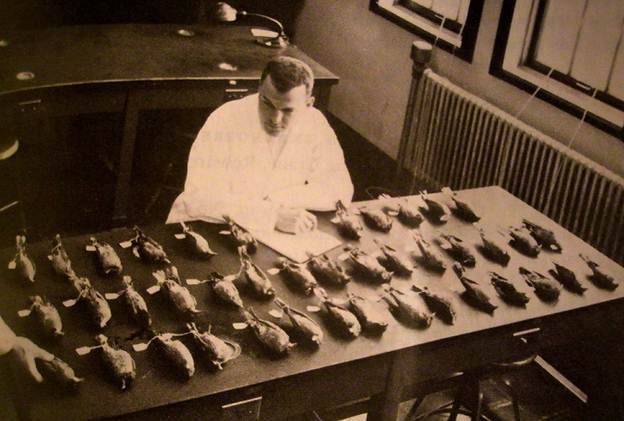OP/ED: Sick, stupid and sterile
In September 1962 – 50 years ago this month – a book was published which changed the way we looked at the post-World War Two chemical revolution. Rachel Carson’s Silent Spring – a clarion call about the perils of pesticides – is largely credited with launching the modern day environmental movement.
Soon after its publication, the indiscriminate spraying of DDT on farm fields and suburbs in the US ended, followed in 1972 by an outright ban on its manufacture and use. Forty years later, DDT’s metabolite DDE can be found in the bodies of 95% of Americans.
These chemicals persist.
Rachel Carson wrote about the damage pesticides could do to humans and wildlife in doses as small as one part per million.
In 1996 another ground-breaking book was published. Our Stolen Future by Theo Colborn and Peter Myers details the wealth of scientific research highlighting the ability of many supposedly safe manmade chemicals (including still widely used pesticides) to mimic hormones and – in parts per billion – interfere with immune system, cognitive and reproductive development.
Put simply, there is every reason to believe that chemicals in our environment are making us sick, stupid and sterile.
Earlier this year, the Environmental Working Group (EWG) released its annual guide to pesticide residues on domestic and imported produce. The guide highlights the worst of the worst, the dirty dozen fruits and vegetables which shoppers should replace with organic produce wherever possible.
Think all you have to do is wash and peel your fruit and vegetables before you eat them? Guess again. The majority of studies on which the EWG guide is based involved testing samples after they had been washed or peeled.
Most alarming were the number of samples contaminated with organophosphate (OP) insecticides.
A study by Stephen Rauch of BC Children’s Hospital has linked prenatal exposure to these known neurotoxins with lower birth weight and shorter gestation. Rauch notes that these pregnancies began after OPs were restricted for most uses. He also flags other studies linking prenatal exposure to OP insecticides with abnormal reflexes and reduced cognitive abilities.
In a worrying article in the current issue of Watershed Sentinel, children’s health expert Bruce Lanphear highlights the research linking exposure to environmental contaminants with increasingly common childhood illnesses and disabilities.
For example, OP insecticides have been strongly linked with dramatic increases in attention deficit/hyperactivity disorder (ADHD), while the marine anti-fouling chemical tributyltin has been identified as an “obesogen” which can mimic the hormones involved in the development of obesity.
One of the several quotes from Rachel Carson which Lanphear uses in his article is the following: “Thalidomide and pesticides represent our willingness to rush ahead and use something new without knowing what the results are going to be.” Lanphear points out that the substantial and lifelong implications for children of exposure to environmental chemicals are subtle and often unlikely to be recognised.
In the month when the manufacturer of thalidomide finally issued an apology for the damage caused by its drug, Lanphear quotes environmental health expert David Rall, who once remarked: “If thalidomide had caused a ten-point loss of IQ instead of obvious birth defects of the limbs, it would probably still be on the market.”
In an article written for Environmental Health News to mark the 50th anniversary of the publication of Silent Spring, the distinguished scientist Paul Ehrlich observes: “Many people have the impression that climate disruption is the worst environmental problem humanity faces, and, indeed, its consequences may be catastrophic. But the spread of toxic chemicals from pole to pole may be the dark horse in the race.”
Ehrlich thinks Rachel Carson would be appalled by our lack of progress in stemming the flow of toxic chemicals into our air, water, food and bodies.
Perhaps it’s too late. Perhaps we’re already too sick and stupid. I hope not.
Miranda Holmes is an associate editor of Watershed Sentinel magazine. For the full story on chemicals and children’s health go here.























Comments